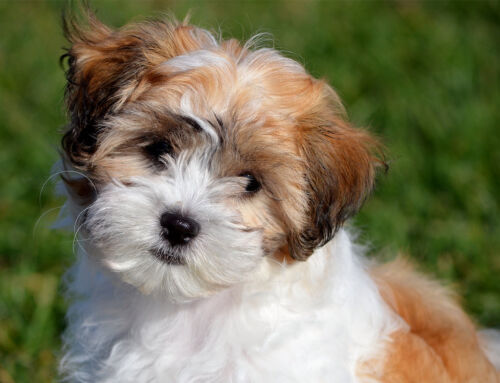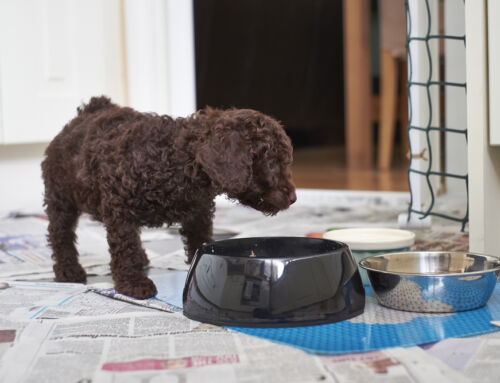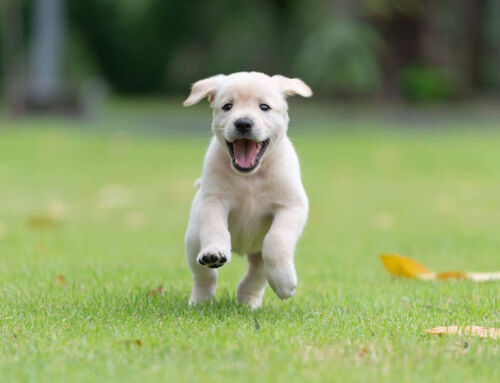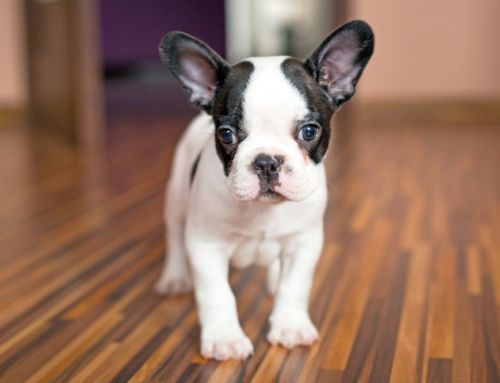 You build a routine with a new puppy for the same reason you schedule a child’s day or structure your own time at work. When your fluffy new friend knows what to expect, they’ll feel confident and secure. If you’re consistent, they’ll be more likely to listen to you and it’ll be much easier for you to teach them how to behave. Everyone in the household can benefit from understanding their role in the cuddly canine’s routine.
You build a routine with a new puppy for the same reason you schedule a child’s day or structure your own time at work. When your fluffy new friend knows what to expect, they’ll feel confident and secure. If you’re consistent, they’ll be more likely to listen to you and it’ll be much easier for you to teach them how to behave. Everyone in the household can benefit from understanding their role in the cuddly canine’s routine.
That said, puppies are just so darned cute and cuddly that you might be inclined to let them get away with the odd slip-up here and there. Just be aware that you’re setting them up for life in these early months. If you allow naughtiness at the beginning, they’ll think they can get away with it when they’re bigger and not as adorable!
When Should You Start Training Your Puppy?
Bringing a new addition to the household is super-exciting, but it can soon become super-stressful if you don’t plan and prepare. To establish good behaviors, training should begin as soon as you get home. As the old saying goes, start as you mean to go on. Puppies are smart and sassy — don’t let them pull the wool over your eyes or they’ll run rings around you.
You shouldn’t expect miracles or perfect obedience from a puppy, but establishing a routine is the ideal way of beginning the process. You don’t need to map every minute of every day, but by focusing on the stand-out areas, you give yourself and the new pup the best chance of becoming a harmonious team.
Bringing Your Puppy Home
- Find out exactly what your pup has been eating and stick to the same for a week or two. They’re so sensitive to change that new food on top of a different environment could be stressful.
- Keep food and water bowls in the same place all the time. Feeding time is the first and most effective way of establishing a routine with your new pal.
- Take the little cutie to the toilet in the same spot each time and at the same times each day.
- Let them have access to one or two rooms to begin with so they don’t get overwhelmed.
- While it’s a fantastic time for everyone, remember the puppy hasn’t been away from its mom or siblings for long, and change is especially scary for such a young furball. Try not to be too loud and excitable around the puppy while they settle in; it might stress them out.
How to Approach the First Night
- Puppies don’t have the same rhythms as we do, so don’t wake them up during the day so they’ll sleep at night. If they sleep at any time, let them sleep.
- Your puppy should have a crate for the initial portion of their time with you to prevent them from causing havoc at night. You can use a hot water bottle with a blanket over it to simulate their mother’s body heat.
- Ignore your puppy when they whimper for attention or it will become a tactic they’ll use to manipulate you! Be confident in your decisions and stick to what you say you’re going to do.
- It’s highly likely that your adorable new fur baby will need to go to the toilet in the night. We recommend setting your alarm every two to three hours to take them to the bathroom. By doing this, you get them into the habit of eliminating outside only. Leaving them to their own devices will make potty training a challenge.
The Basics of Puppy Training
Although you’ll be tempted to play and cuddle with your new pup all day, the first few weeks is the most crucial time to be strict. You won’t be able to teach them everything you’d like them to know in this short space of time, but you’re establishing that there are clear rules and expectations. Being dedicated to the schedule doesn’t mean you can’t have fun either — playtime and fun times are integral to a dog’s well-being.
Feeding Schedule
Puppies need to eat more than adult dogs, so do plenty of research on the best food and feeding schedule for your particular breed. With set mealtimes, your adorable new pup knows when to expect food and is less likely to beg between meals.
Potty Training Your New Puppy
Take them to the toilet every two to three hours in the exact same place. By being as consistent as possible, you’re showing them that eliminating isn’t something they can do anytime they feel like it in any place. If they do go in the wrong place, just tell them no in a firm but controlled voice and take them to the toileting spot. Calm consistency is always the best approach.
Puppy Play Time
Bonding with your pup, taking them for walks and getting them plenty of toys to play with are essential activities. Make sure each day has a variety of exciting and energy-burning ways for them to pass the time. A tired and content puppy is much less likely to be ornery than a bored one!
Use Keywords From Day One
You won’t be able to get into formal training while you’re in the process of establishing a routine, but you can teach them some basics every day. Use simple keywords like yes, no, good and bad clearly and consistently so the dog can learn to associate the same meaning with that every time. They’ll be eager to please you as long as you provide enough praise and rewards.
If you’re ready to bring a new pup into your household, find a puppy online today.




